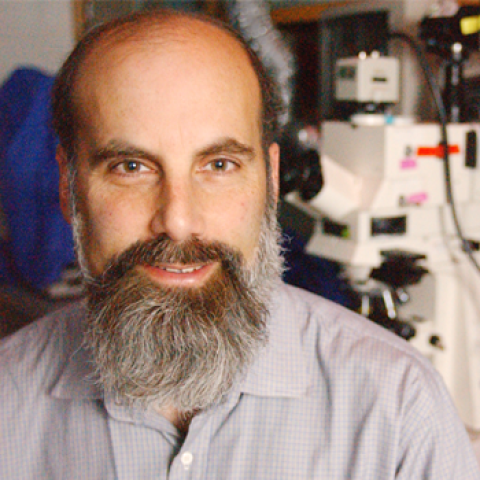Interdisciplinary Initiatives Program Round 6 - 2012
Matthew Scott, Developmental Biology
W.E. Moerner, Chemistry
Hedgehog (Hh) signaling is employed in the development of most organs and tissues, acting in stem and other cells to control cell fates or proliferation. Damage to Hh signaling can lead to birth defects or cancer. Understanding mechanisms of Hh signal transduction is crucial for learning how cells receive and interpret Hh signals in normal development, and to design manipulations for preventing cancer or promoting regeneration. Primary cilia are unitary immotile surface appendages found on most interphase cells. Mutations that damage primary cilia prevent proper Hh transduction, so cilia appear to be important transduction centers. Hh transducers dramatically relocate within cells in response to Hh ligands or to small molecules that affect Hh signaling. We will apply advanced, sub-diffraction limit, single-molecule imaging technology to analyze the trafficking of Hedgehog pathway proteins in live cells. Our studies will lead to a much more complete picture of the protein movements and the mechanisms that cells employ to properly interpret Hh signals.



